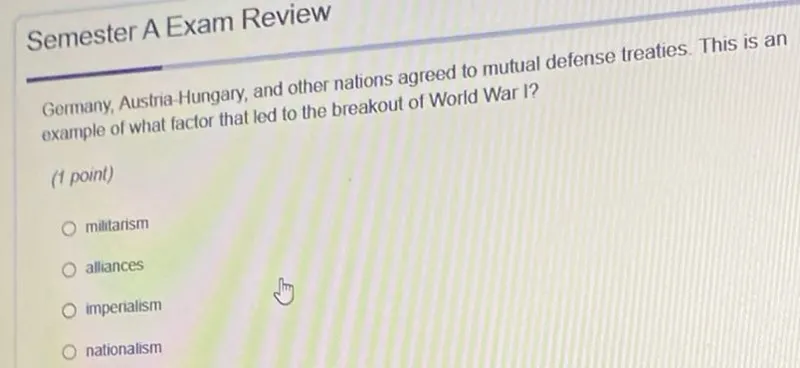Questions: Semester A Exam Review Germany, Austria-Hungary, and other nations agreed to mutual defense treaties. This is an example of what factor that led to the breakout of World War I? (1 point) militarism alliances imperiailism nationalism

Transcript text: Semester A Exam Review
Germany, Austria-Hungary, and other nations agreed to mutual defense treaties. This is an example of what factor that led to the breakout of World War I?
(1 point)
militarism
alliances
imperiailism
nationalism





